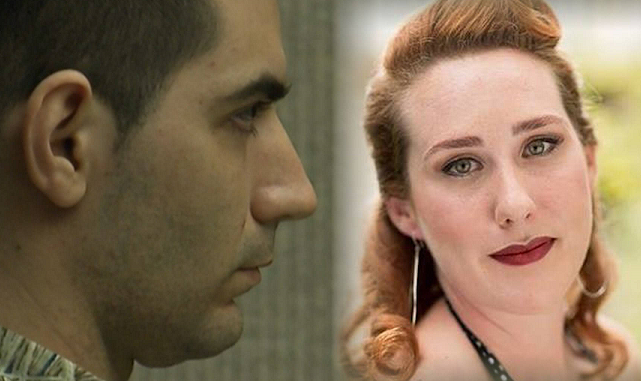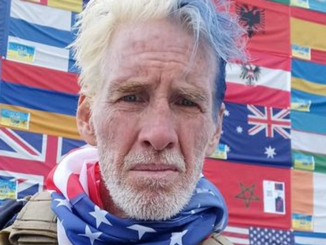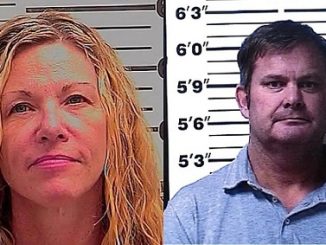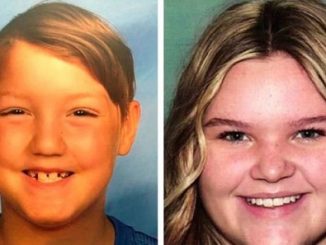
May 23, 2017
Steven Capobianco was accused of killing his pregnant ex-girlfriend in 2014. He was charged with second degree murder for the death of 27-year-old Carly “Charli” Scott, who was five months pregnant with an unborn child fathered by Capobianco when she was reported missing in February 2014.
Her torched SUV was later discovered on Maui’s North Shore, but her body was never found.
Capobianco pleaded not guilty to the charges, but was found guilty on both counts on December 28, 2016.
Capobianco is the last person known to have seen Scott alive. In the days following Charli Scott’s disappearance, Capobianco had done an interview with police in which he said Scott had picked him up on the night of Sunday, Feb. 9, 2014, and dropped him off at his truck that he said got stuck in Keʻanae on Feb. 8, 2014.
In closing arguments, the defense suggested that the story Capobianco told police could have been lie to cover up a drug deal involving marijuana.
Prosecuting attorney Robert Rivera said that Capobianco was the “only person with a motive, the opportunity and intent,” and said it was “utterly and absolutely ridiculous,” that “he didn’t try to clear his name and continued to lie just to cover up some kind of marijuana deal.”
The defense also argued that marks left on a jawbone recovered from Nuaʻailua were consistent with scoring from a pig or wild boar.
That argument was contrary to the testimony presented by several witnesses for the prosecution who said the marks were consistent with a knife. Dr. Lindsey K Harle a Forensic Pathologist with Clinical Labs of Hawaiʻi testified that incision injuries were likely inflicted by “someone attacking her with a sharp object” or someone using a knife to “essentially de-flesh the bone.”
Having found Capobianco guilty of murder, there was a trial phase to consider aggravated circumstances for enhanced sentencing. The jury had to deliberate on whether the state proved beyond a reasonable doubt that the murder was “especially heinous, atrocious and cruel.”
According to the juror instructions read by Maui Chief Judge Joseph Cardoza, the jury had to determine that a consciousless and pitiless crime occurred in which the victim suffered unnecessary torture. According to the instructions, five material elements must be established in order for a conviction on the final allegation including the following: (1) the defendant was 18 years or older at the time of the murder; (2) the murder was a consciousless or pitiless crime; (3) the victim suffered unnecessary torture; (4) the defendant inflicted unnecessary torture on the victim; and (5) the defendant did so intentionally or knowingly as to the foregoing elements.
Judge Cardoza explained that unnecessary torture is defined as the infliction of extreme physical or mental suffering, beyond that which necessarily accompanies the underlying killing. It encompasses more than the infliction of a fatal injury.
Judge Cardoza explained that the jury could come back with an answer of yes or no, and that the decision must be unanimous.
During closing arguments of the aggravated circumstances trial phase, defense attorney Jon Apo argued that, “The more stab wounds, the quicker the onset of death.” He said, “The quicker the onset of death, the less suffering.” He continued telling the jury, “You may not like that, but that is common sense and reason.”
The jury answered “Yes” to the question of whether the murder of Carly “Charli” Scott was “especially heinous, atrocious and cruel.” The jury’s unanimous finding meant Capobianco qualified for a sentence of life in prison without parole.
However, on March 24th Second Circuit Judge Joseph Cardoza sentenced Capobianco to life in prison with the possibility of parole plus 10 years.
Judge Cardoza said it was the court’s recommendation that Capobianco serve a minimum of 70 years before being eligible for parole on the second-degree murder conviction and all 10 years consecutively for the second-degree arson conviction.
Judge Joseph Cardoza said that the Hawaii Paroling Authority would determine Capobianco’s minimum terms after meeting with him within the next six months.
First Deputy Prosecuting Attorney Robert Rivera said the prosecution would recommend to the parole board that Capobianco serve at least the 70-year minimum term recommended by the judge.
Capobianco will now face a restitution hearing.
World Justice News are showing the Steven Capobianco Hearing free. For the link to view the Steven Capobianco Hearing please click here to see our daily schedule.






Be the first to comment